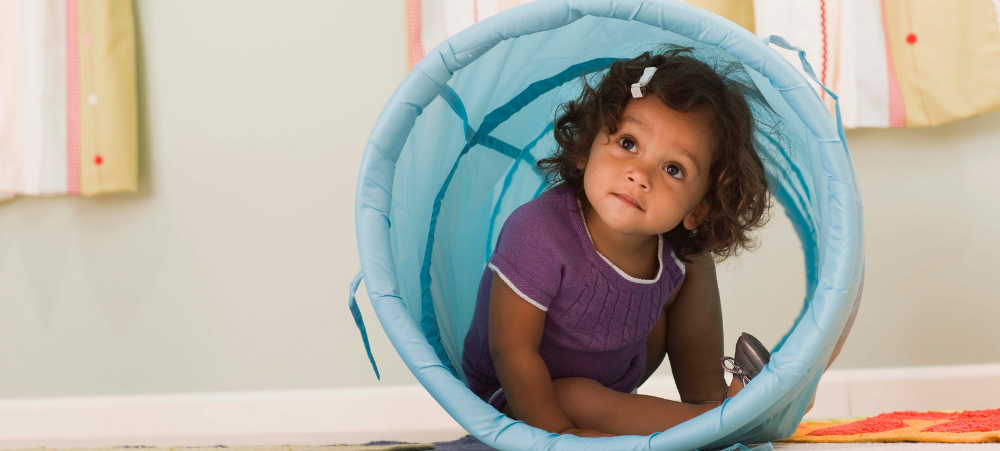Independent play is a vital part of toddler development. It helps children build creativity, problem-solving skills, and confidence, while also giving parents a little breathing room. Encouraging toddlers to play independently doesn’t mean leaving them completely unsupervised—it means creating an environment where they feel safe, engaged, and empowered to explore on their own.
1. Create a Safe Play Space
Toddlers are curious and mobile, so safety is key:
- Designate a Play Area: Baby-proof a corner of the room with soft flooring, child-safe furniture, and age-appropriate toys.
- Limit Hazards: Remove breakables, cords, or small choking hazards.
- Accessible Toys: Keep toys at toddler height to encourage exploration and choice.
2. Offer Open-Ended Toys
Toys that encourage creativity foster independent thinking:
- Blocks & Stacking Toys: Great for problem-solving and building structures.
- Pretend Play Items: Toy kitchens, dolls, or costumes spark imagination.
- Art Supplies: Crayons, washable paints, and paper allow for self-expression.
3. Set Clear, Simple Expectations
Toddlers thrive on routine and guidance:
- Explain Playtime: Let them know it’s time to play independently for a set period.
- Start Small: Begin with 5–10 minutes and gradually increase.
- Praise Efforts: Celebrate their creativity, even if the result isn’t perfect.
4. Rotate Toys and Activities
Keeping play fresh encourages sustained engagement:
- Toy Rotation: Swap out sets weekly to maintain novelty.
- Activity Stations: Set up different zones for building, art, reading, or sensory play.
- Seasonal or Themed Play: Introduce seasonal items like sand, water tables, or nature finds.
5. Join Then Step Back
Support independence without hovering:
- Demonstrate First: Show how a toy works, then encourage the toddler to try.
- Be Nearby: Stay within sight or earshot for reassurance, but resist stepping in too quickly.
- Encourage Problem-Solving: Let toddlers figure out solutions with gentle guidance.
6. Incorporate Independent Play Into Daily Routine
Consistency builds confidence:
- Morning or Afternoon Sessions: Schedule playtime at predictable times.
- Combine With Household Tasks: Use independent play to allow parents to complete short tasks safely.
- Gradual Increases: Slowly extend playtime as toddlers become more comfortable.
7. Celebrate Creativity and Progress
Independent play strengthens a toddler’s sense of accomplishment:
- Display Artwork: Hang their drawings or creations as a confidence booster.
- Talk About Their Play: Ask what they built or imagined to show interest.
- Encourage Storytelling: Let toddlers narrate their play, enhancing language skills.
Final Thoughts
Encouraging independent play helps toddlers develop autonomy, creativity, and problem-solving skills while giving parents a structured way to support their growth. By providing a safe environment, age-appropriate toys, and consistent routines, toddlers can explore confidently and enjoy the pride of self-directed play.
Sources:
- Zero to Three, The Importance of Independent Play: https://www.zerotothree.org
- Mayo Clinic, Child Development: Ages 1–3: https://www.mayoclinic.org/healthy-lifestyle/infant-and-toddler-health
- American Academy of Pediatrics, Play and Learning in Toddlers: https://www.healthychildren.org
We understand that there are many aspects that encompass a Mother, Father or Child and strive toward providing resources and services that accommodates this.
Our content is aimed to inform and educate families on issues starting from pregnancy through to the challenges of the teen-age years.
- Say Hello to the Ultimate Holiday Brunch Bite - December 17, 2025
- Tiny Toons Looniversity Returns: Meet the Voice Behind Plucky and Hamton! - December 12, 2025
- From Pain to Possibility: Panado®’s New Marketing Campaign, Highlights The Joy Of Pain Relief - December 10, 2025





